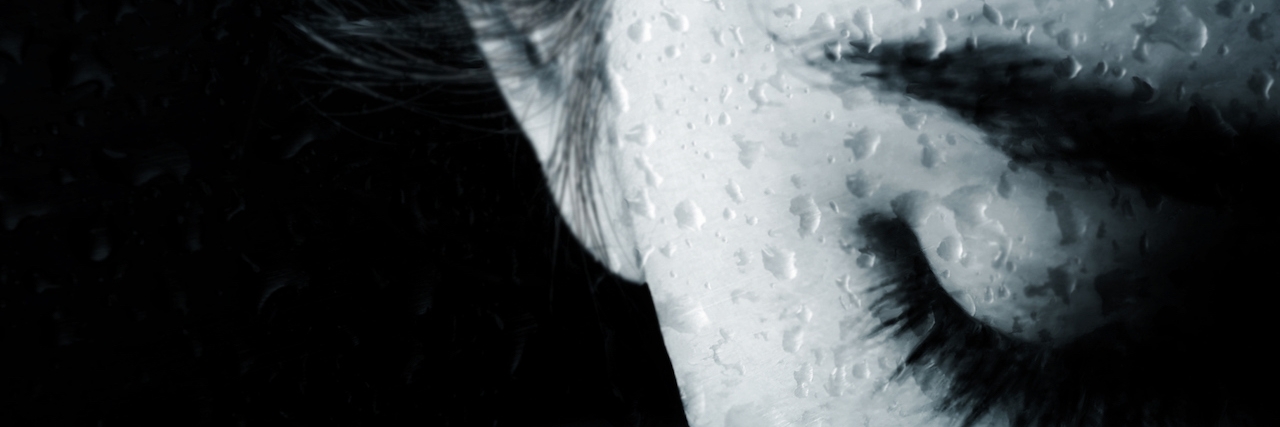My brain is a paradox. I value my own worth crushingly low in comparison to the power of my thoughts. I have no self belief, yet I’m trapped by the idea that the intrusive thoughts impending my brain have the ability to make or break a person, a life, everything. I tell myself no, that’s not realistic. That little murmur creeps in… but, what if?
Walk across a bridge. See yourself plunging in, head first, spiraling. I don’t want to do that.
But, what if you do?
Walk along a path. See yourself push your best friend in front of a car. See the effects, the devastation, the hatred, the guilt. I don’t want to do that.
But, what if you did do it?
Walk down the stairs. Each step provokes a violent image. Tap four times. You’re safe. OK, next step. Violent. violent, violent image. Stop. Stop. Stop. Stop. Stop. Nausea. Pounding heart. Tap. Tap. Tap. Tap. Breathe. It’s OK. I tapped. It’s fine.
But, what if it’s not?
Shake hands with a stranger. Watch the germs creep into your skin as the diseases, bacteria and dirt-ridden nails are thrust upon you. Wash your hands, just to be sure. I won’t get sick.
But, what if I do?
Drag hands down a hand-rail. Feel the contamination seep into your pores. Sanitize your hands. Wash them at high temperatures. Pray you don’t get ill. I won’t get sick.
But, what if I do?
Re-wash hands, just in case. I won’t get sick. But, what if I do? Re-wash hands, just in case. I won’t get sick. But, what if I do? Re-wash hands, just in case. I won’t get sick. But, what if I do? Re-wash hands, just in case.
Stare at broken, dry, harmed skin. Not sick, but sore. But, what if you really do get sick?
Step on a crack. Break your mother’s back. Step twice, undo it. Avoid cracks. Allow your toes to be crushed by the full weight of your body because toes take up less area and therefore, less likely to step on a crack. She’ll be OK now. But, what if she’s not?
Cracking a mirror is bad luck for seven years. Avoid all mirrors at all costs. Stop driving because three is an odd number of mirrors and if they were all to smash, bad luck will come your way. My luck is safe now. But, what if it’s not?
Walk out of an exam. That went well. But, now you’ve thought that, so it must’ve been terrible. You’ve probably failed. Think about getting an E grade; now you’ll get an A because your thoughts won’t come true. I think I’ll fail. So I’m bound to pass. But, what if you fail?
Make it out of your front door without counting the steps from bedroom to bathroom to kitchen to door. You must be cured. I’ve been faking it all this time, you’re led to believe. Intentionally trigger intrusive thoughts because, what if, what if you really have been wanting to do these horrendous things and obsessive compulsive disorder (OCD) is just an “excuse”? But, what if?
Everyone has intrusive thoughts. For most people, these are fleeting and hold no significance besides, “Oh, what a weird thought.” In fact, you may recognize some of the thoughts described. It’s normal. I promise you.
What’s not normal is when these thoughts cause significant distress. Although OCD is a very unique and distinct disorder, there are a number of key symptoms to look out for, but largely, patterns of thoughts accompanied by internal or external compulsions that cause anxiety, impair quality of life and evoke personality changes are prime to look for.
This disorder is highly stigmatized, but the past 10 years have proven stigma can be stamped out. OCD is not a passion for “neatness.” It’s disabling images of murdering your family if your pen isn’t sitting exactly there. OCD is not a quest for “perfection.” It’s a disease of doubt, constant questioning, but, what if?
OCD is not a disease that bothers. It’s a disease that tortures. Intrusive thoughts plague an individual, leading to extreme guilt, shame and accompanied by a strong sense of responsibility, even suicide.
Before you describe your quirks as OCD, reflect on how they impact your life. Remember that OCD isn’t a positive personality trait. It’s a chronic disorder that ruins lives. If you know someone struggling, then please speak out. Help is out there. You can do this.
Take care,
– Alisha x
This post originally appeared on Alisha Gregg’s blog: Writerield.

